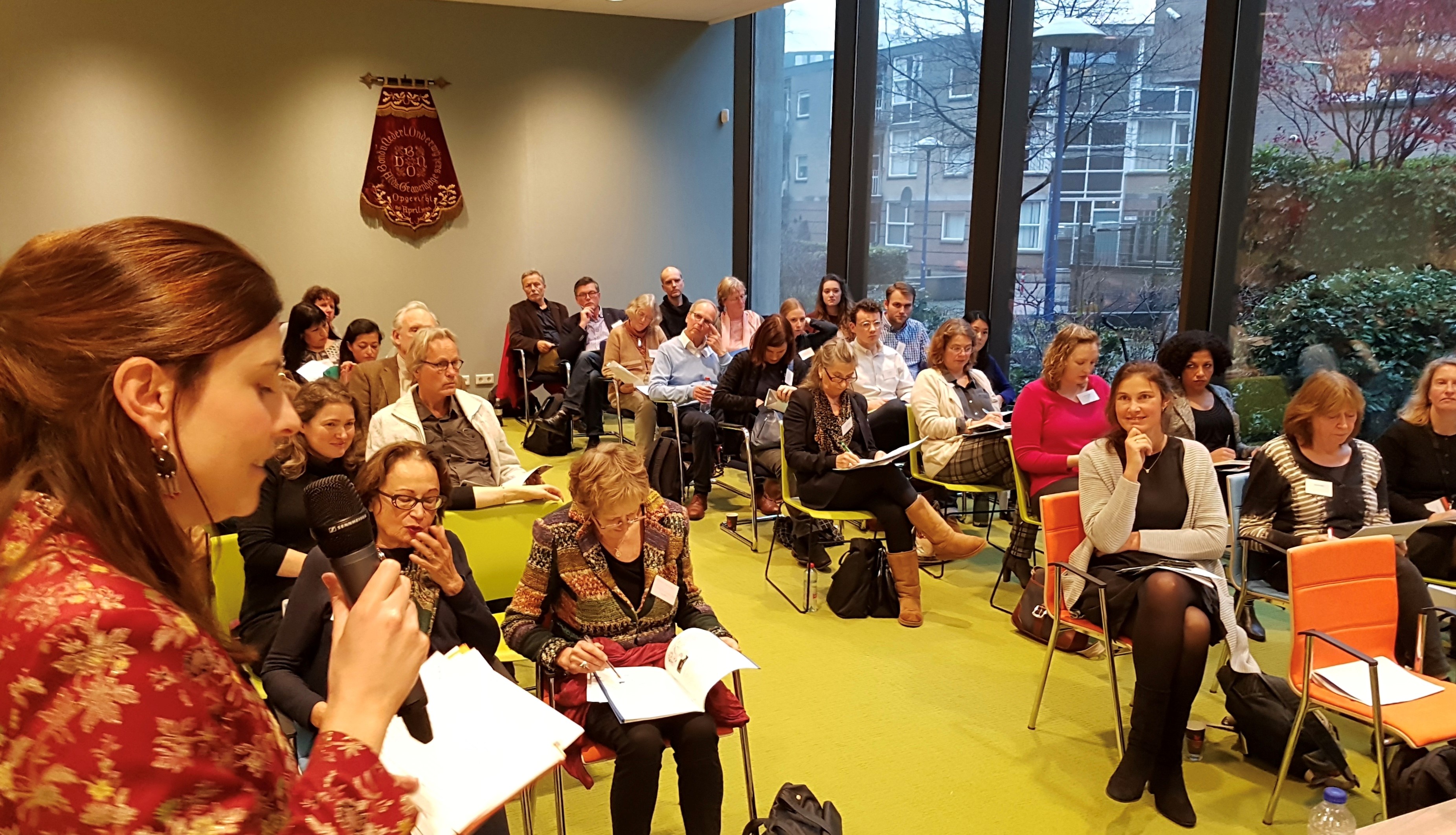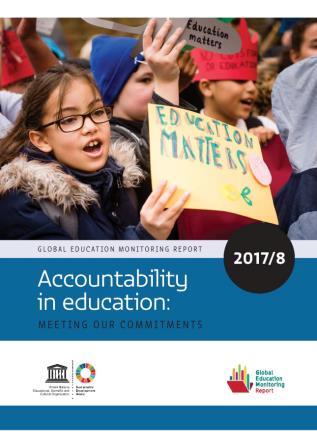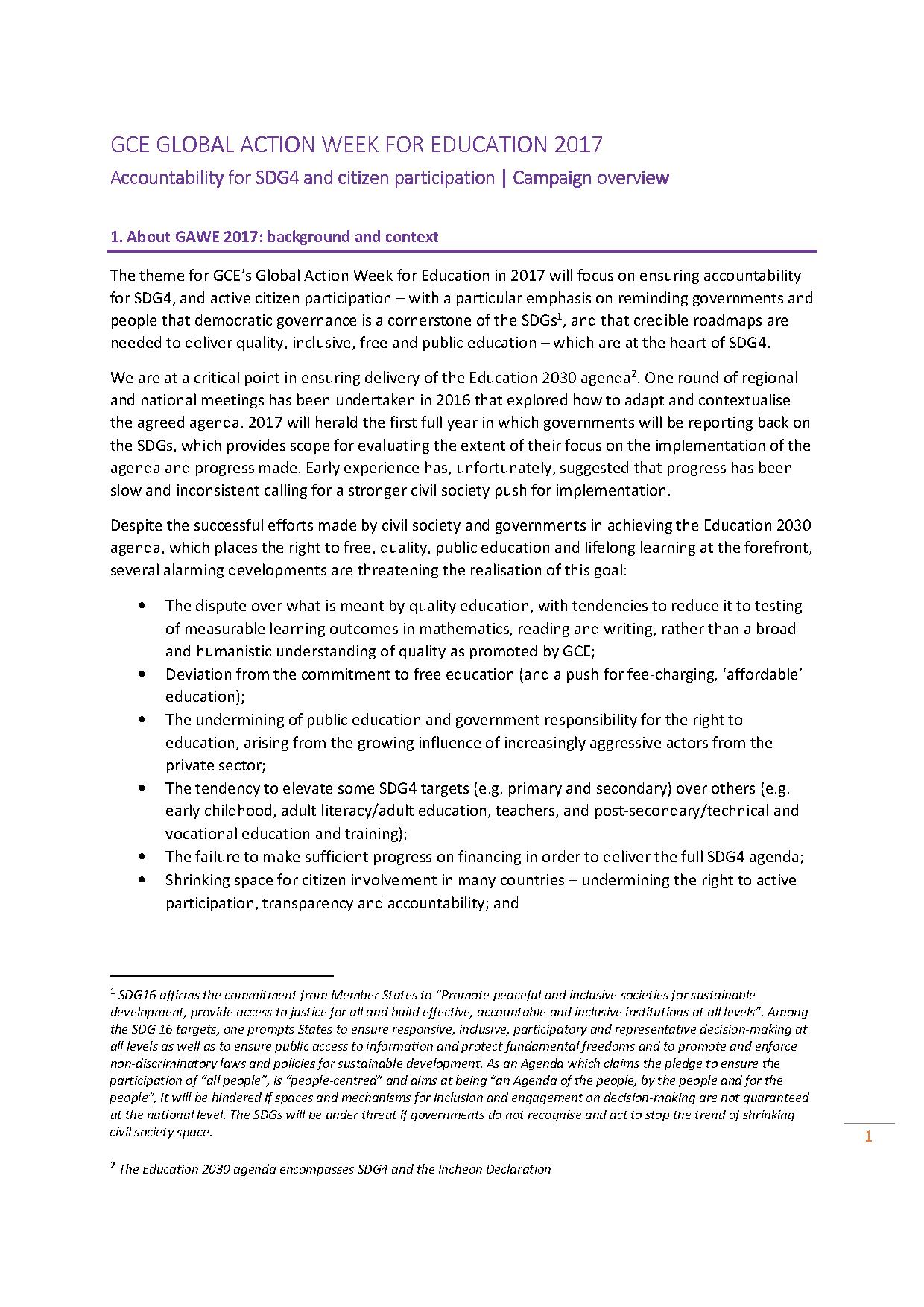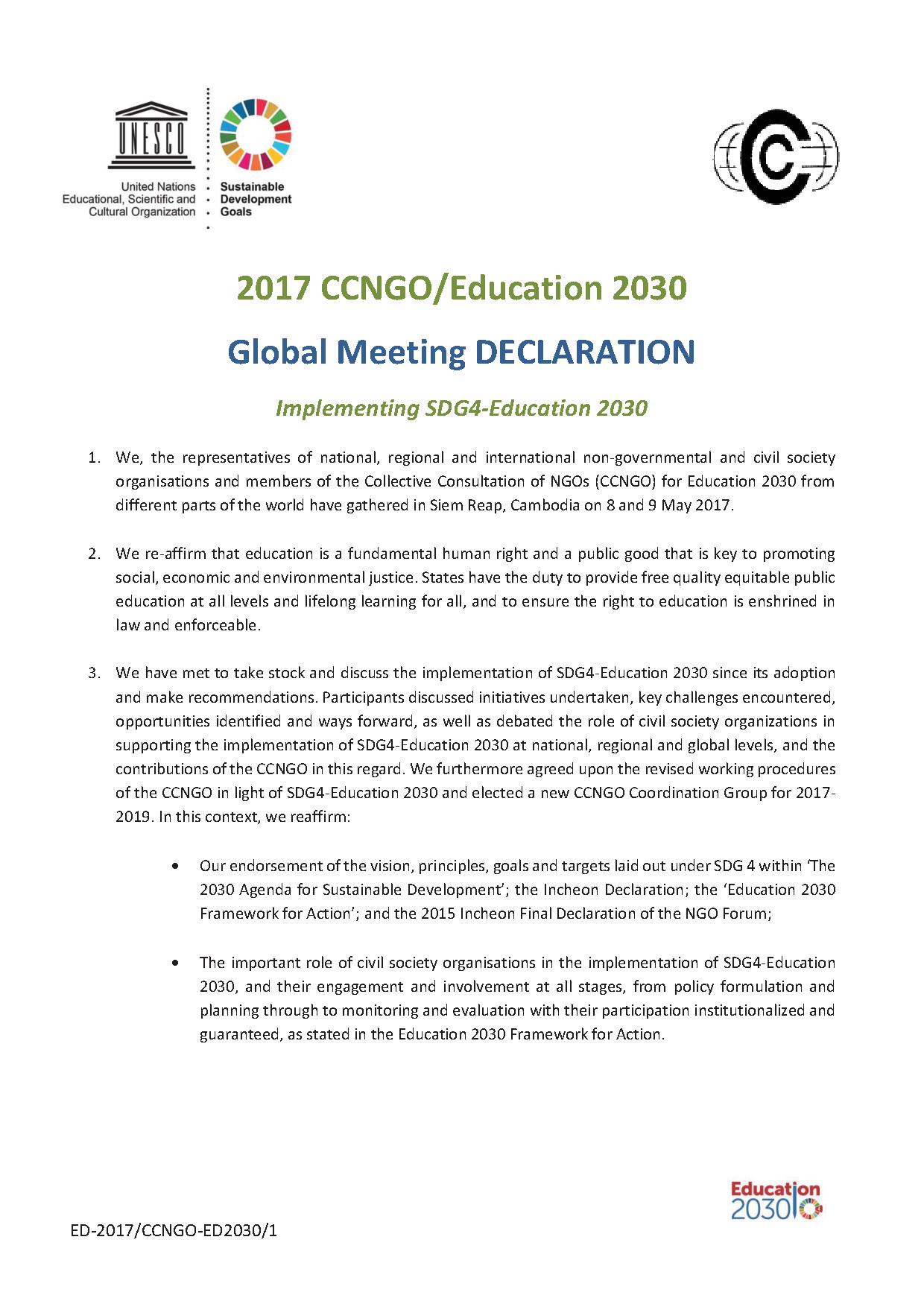Who is accountable for the right to education in the South? Challenges and opportunities for Dutch civil society
Launch of the GEMR 2017/18
20 November 2017 | Algemene Onderwijsbond, Utrecht
‘Accountability’ – that is the central theme of the Global Education Monitoring Report 2017/8: who is responsible for good quality education? Who can be held accountable, and how? The authoritative annual GEM Report assesses progress towards the international education goals, highlighting a special theme each year.
National governments bear the primary duty to ensure the right to education for all. But governments in the South do not always have sufficient means, expertise or capacity, or they set other priorities. Other relevant actors (schools, teachers, parents, students, international organisations and the private sector) often try to address issues that governments neglect.
On the International Day for the Rights of the Child the Global Campaign for Education Netherlands organised a meeting to discuss the current role of Dutch civil society in the right to education in the South, and how to proceed.
In the past years the space for Dutch civil society has changed considerably. Government policy has shifted and the boundaries between civil society, government and private sector have faded. Did this create limitations or new opportunities? What exactly is the added value of Dutch civil society alongside other actors? How about monitoring, lobbying and advocacy, and agenda setting: are these unique civil society roles? How can we better use our strengths to contribute to the provision of quality education effectively, efficiently and equitably?
Global Education Monitoring Report 2017/8
In 2017, the second report in the Global Education Monitoring (GEM) Report series continues its assessment of progress towards the Sustainable Development Goal on education (SDG4) and its 10 targets, as well as other related education targets in the SDG agenda. It also investigates accountability in education, analyzing how all relevant stakeholders can provide education more effectively, efficiently and equitably. The report examines different accountability mechanisms that are used to hold governments, schools, teachers, parents, the international community, and the private sector accountable for inclusive, equitable and quality education. By analysing which policies make accountability work or fail, and which external factors impact on their success, the 2017/8 GEM Report concludes with concrete recommendations that will help build stronger education systems.
Global Action Week for Education 2017
Accountability for SDG4 and citizen participation
The theme for GCE’s Global Action Week for Education in 2017 focuses on ensuring accountability for SDG4, and active citizen participation – with a particular emphasis on reminding governments and people that democratic governance is a cornerstone of the SDGs, and that credible roadmaps are needed to deliver quality, inclusive, free and public education – which are at the heart of SDG4.
Collective Consultation of NGOs on Education
The Collective Consultation of Non-Governmental Organizations on Education for All (CCNGO/EFA) is UNESCO’s key mechanism for dialogue, reflection and partnership with NGOs working in the field of education. Since its establishment in 1984, the CCNGO/EFA has evolved to become an international network of over 300 national, regional, and international NGO members. The network continues to be a key mechanism and platform for civil society organizations to contribute to the collective 2030 commitment to ensure quality and inclusive education and lifelong learning opportunities for all. The 8th Global Meeting of UNESCO’s CCNGO/EFA was held in Siem Reap, Cambodia, from 8 to 9 May 2017. It brought together representatives of international, regional and national member NGOs from across the world to discuss and reflect on where civil society stands 18 months after the adoption of the global education agenda, taking into account activities undertaken, key challenges encountered, opportunities identified and the way forward.
IOB Policy Review of Dutch support to civil society development
Since many years, civil society has been one of the Dutch government’s main channels for providing development aid. Civil Society Organisations (CSOs) are appreciated for their ability to contribute to direct poverty alleviation and for their efforts to defend the rights of the poor and the oppressed. Apart from their own funds, Dutch organisations use the Foreign Ministry’s subsidies to support a wide variety of partners in developing (‘Southern’) countries. More recently, the space for Southern CSO’s (SCSOs) activities has decreased, because civil society is increasingly restricted in many countries. This particularly applies to SCSOs that receive funding from abroad. Direct service delivery by these SCSOs is in general appreciated by governments, but activities in the fields of awareness raising, organising the marginalised and lobbying and advocacy are increasingly considered unwelcome. This policy review, ‘Shifting Interest, changing relations, support under pressure’, analyses the effectiveness and efficiency of the programmes of subsidised Dutch CSOs (DCSOs) in the period between 2011-2015. It examines the programmes of the Co-Financing System II (MFS II) organisations, the Trade Union Co-Financing Programme (TUCP) organisations and of SNV Netherlands Development Organisation (SNV).





